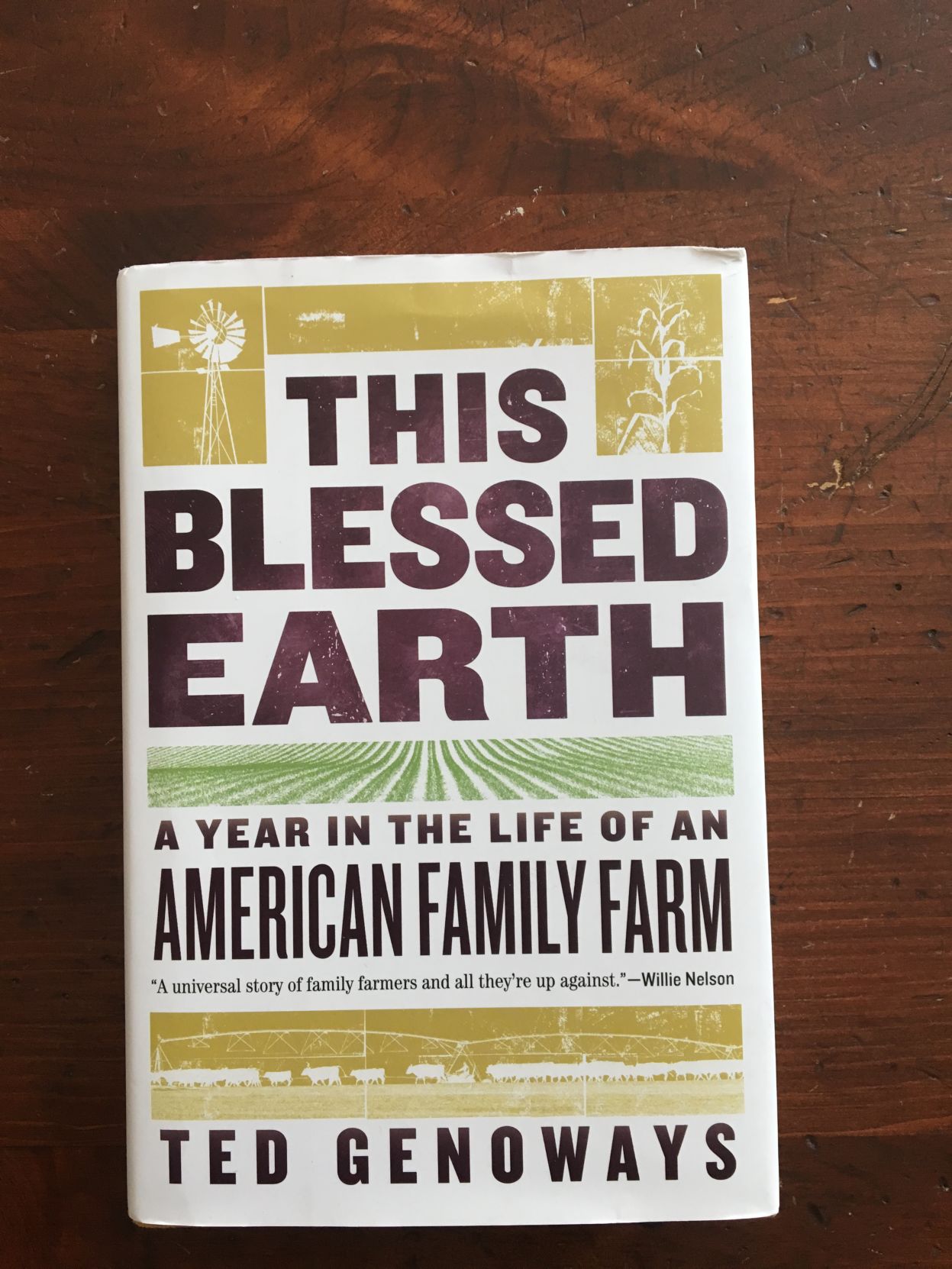A Nebraska family’s year-long battle with weather, Keystone XL and too much corn

It is often difficult to accurately portray the wide range of responsibilities on your farm and ranch to those who don’t live it everyday. Proficiencies in agronomy, record keeping, mechanical repair, marketing and animal husbandry are necessary, of course, and any given day can turn on a dime from one to another.
Add into the mix factors outside your control and community activism, and you have the outline for Ted Genoways’ book, “This Blessed Earth: A Year in the Life of an American Family Farm.”
Genoways follows Nebraska farmer Rick Hammond, his daughter Meghan and her then-fiancé, Kyle Galloway, on the family’s sixth-generation farm in York County, Nebraska.
Genoways, the grandson of western Nebraska farmers, met Rick while on assignment learning about the proposed Keystone XL pipeline project that would move tar sand oil from Canada to Texas. The planned pipeline was slated to slice through the Hammond’s farm, and Rick and Meghan vehemently opposed the project, believing it would cause irreparable damage to their crop land, plus endanger the Ogallala Aquifer, the primary source of irrigation water for much of the Nebraska irrigation industry.
The author explains the off-farm challenges facing the Hammonds, as they do other farmers: politics and trade, fluctuating commodity prices and consumer perception of farmers and food, among them. This is the interesting part, for me. He does a thorough job of diving into the Keystone issue, pointing out that after construction, the pipeline would deliver just 35 full-time jobs to the American economy while delivering Canadian oil to Texas for export. The construction alone would disrupt thousands of acres of farm ground, which never returns to the same productivity.
He delves into the ascension of corn/soybean crop rotations and how herbicide resistant crops have revolutionized farming, while farmers have to sign agreements that chip away at their independence.
Genoways also talks about trade, and the nefarious nature by which some foreign countries steal technology from American seed companies. Again, these factors are out of the control of farmers like Rick, but they all eventually influence the bottom line, with higher costs and lower profitability.
The Hammonds are an interesting story in and of themselves. They own Centennial Hill Farm near Benedict, Nebraska, which they acquired from Rick’s wife’s family and have steadily grown over the years. Rick is beginning to transition the farm to daughter, Meghan, who works with him and son Jess, who frequently helps during busy times. Meghan’s high school sweetheart was a Marine, serving in Afghanistan, when he was killed. Author Genoways carefully paints a picture of Meghan’s grief and her relationship with Kyle. It is compelling reading.
Credit goes to him for weaving the day-to-day operations of the farm; the stuff we’ve all been through—repairs, weather, hard decisions about what to plant and where—with the off-farm influences.
I didn’t expect to like this book. In fact, it had sat on my desk for nearly a year before I decided to dig into it. But once I picked it up—I could hardly put it down. You may not agree with the protagonist’s political and societal beliefs in “This Blessed Earth,” but it will make you think.
Bill Spiegel can be reached at 785-587-7796 or [email protected].



